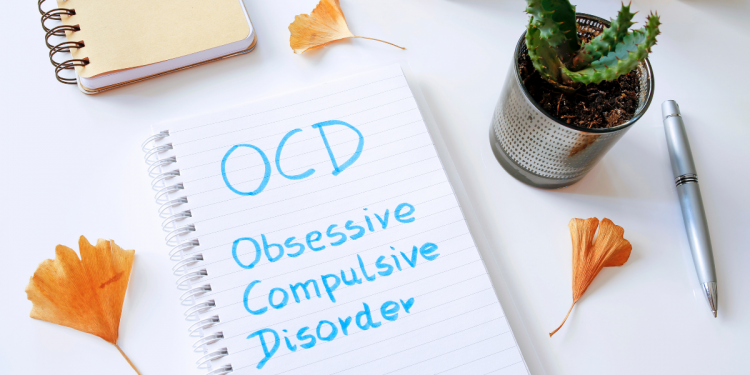Obsessive-compulsive disorder (OCD) is a long mental illness characterized by obsessions that lead to compulsive behaviors. Even though people with OCD are aware that their thoughts and behaviors are unreasonable. They are unable to change them. On game days, many people double-check their front door locks or put on their lucky socks. Simple rituals or habits provide individuals with a sense of security. Double-checking something or following a game-day ritual is not enough for someone with OCD. Someone with OCD feels forced to repeat rituals even if they do not want to. And even if it adds unnecessary complexity to their lives.
Obsessive-compulsive disorder (OCD) is set apart by unreasonable excessive urges to perform tasks, as well as recurrent, unwelcome thoughts. So OCD is set apart by obsessive thoughts or compulsive actions that last more than an hour per day and interfere with daily life.
Obsessions
These are disturbing ideas or impulses that occur regularly. Individuals who struggle with OCD may try to suppress or ignore their feelings. But they may be panicky that they are true. Therefore, the anxiety associated with suppression can become too much for them to bear. Thus, leading them to engage in compulsive behaviors to cope.
Obsessions frequently have a theme, such as the following:
- Embarrassment fear
- Fear of germs or filth
- A powerful desire for order.
- Fear of making a huge mistake.
- Having fear of harming yourself or others is the central theme
- Fear of wicked or unfriendly notions, such as distorted sex or religious beliefs
Compulsions
These are actions that are performed repeatedly to momentarily ease the stress and anxiety caused by an obsession. People with compulsions frequently assume that performing these routines would prevent anything unpleasant from happening. Like obsessions, compulsions also have some themes.
- Order
- Routine
- Counting
- Checking
- Washing or cleaning
- Collecting or hoarding
These monotonous practices are frequently unrelated to the fixation you are trying to overcome and can take hours to complete.
Treatment Options
Medication
OCD treatment strategy includes psychotherapy and drugs. Antidepressants are frequently recommended to aid with OCD symptoms. Also, an antidepressant called a selective serotonin reuptake inhibitor (SSRI) is frequently used to treat compulsive behaviors and compulsions.
Therapy
Talk therapy with a mental health expert can assist you in developing tools that will allow you to change your thought and behavior patterns. Many people benefit from cognitive behavior therapy (CBT) and exposure and response therapy. Both of which are kinds of talk therapy. Exposure and response prevention (ERP) aims to assist people with OCD to cope with the anxiety that comes with obsessive thoughts in non-compulsive ways. Rather than engaging in compulsive activity.
Self-Help Techniques
Although OCD treatment normally require contact with a competent mental health professional. There are several OCD self-help tactics that you may begin utilizing right now to help you cope with your OCD symptoms. Given that stress is a primary trigger of OCD symptoms, learning and practicing a variety of relaxation techniques is one of the best strategies to deal with. Finally, while most of us are aware of the physical benefits of aerobic exercise. Such as decreased cholesterol and a lower risk of heart disease and diabetes. There is mounting evidence that exercise can also help with OCD symptoms.
Other Therapies
It is already clear that between 25% and 40% of patients will not respond to the treatment choices. Other, less well-known therapy approaches for OCD exist. Electroconvulsive therapy (ECT), deep brain stimulation, and repetitive transcranial magnetic stimulation are just a few of the alternatives available. Studies also shows that treatments that target specific brain circuits are effective in lowering OCD symptoms in persons who do not respond to first-line treatments. Deep brain stimulation might be able to help.
A significant impact on a person’s life
Obsessions and compulsions can consume a substantial portion of a person’s day and disrupt family and social relationships. It harms employment as well as education. As the severity of OCD worsens, avoidance may become a bigger issue. Anything that might trigger your obsessive fears needs to avoid your way. People with OCD may find it difficult to carry out daily tasks such as eating, drinking, shopping, or reading. Many people remain in their homes forcefully. Depression and other anxiety disorders. For instance, social anxiety, panic disorder, and separation anxiety can exacerbate OCD.
People with OCD are acutely embarrassed about their symptoms. And can go to tremendous lengths to conceal them. Families may become deeply involved in the sufferer’s rituals before the disorder is identifiable and treatable. Thus, causing distress and disruption to family members. So, talk to your primary care provider or a therapist if you struggle with daily responsibilities because of OCD symptoms.











Discussion about this post